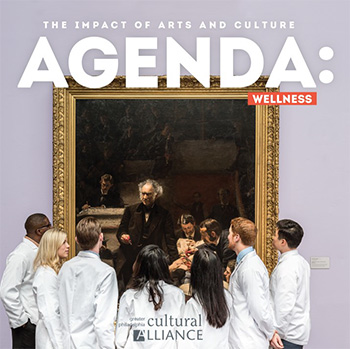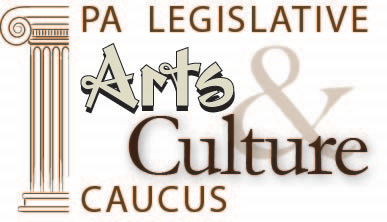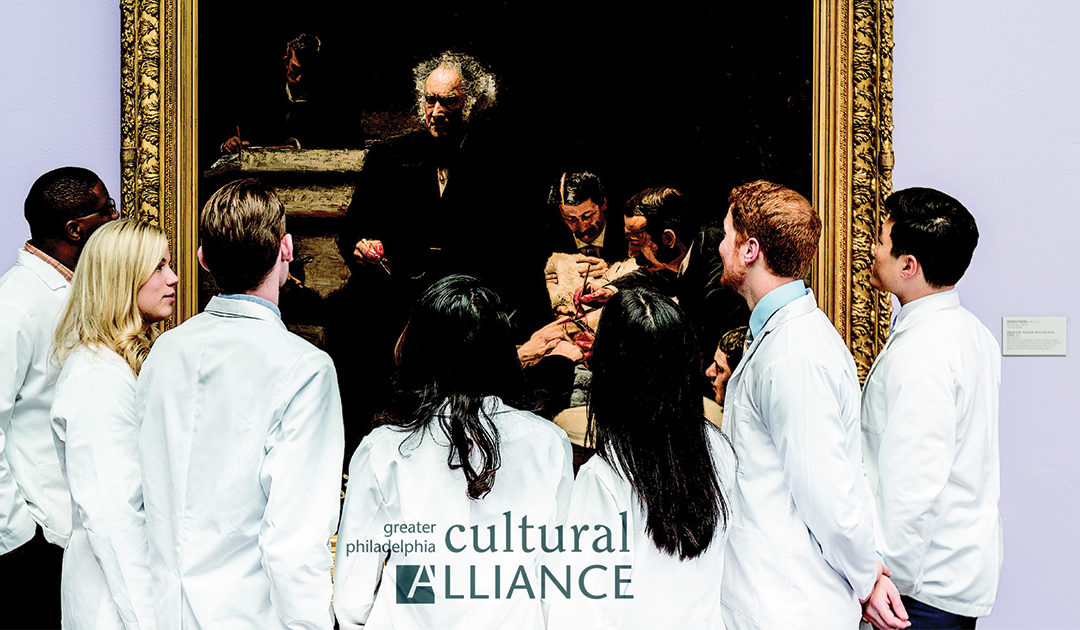By Anne Marie Rhoades, Greater Philadelphia Cultural Alliance
When it comes to arts advocacy, the mantra of the Greater Philadelphia Cultural Alliance is “Data + Stories = Proof.” Tasked with making the case for arts and culture to civic influencers and elected officials at every level, the Cultural Alliance turned that equation into the Agenda series, the latest issue of which, Agenda: Wellness, premiered on April 27, 2018, at Jefferson University’s “Fusion: Innovation Across Disciplines” symposium. The Philadelphia County Medical Society is proud to partner with the Cultural Alliance on Agenda: Wellness.
The Cultural Alliance developed the Agenda series in 2016 to expand the case for supporting the arts from focusing just on economic impact to highlighting the positive social and community impacts as well. The data around economic impact is important, but it’s the stories about arts programs improving people’s lives that really engage and inspire people. Empowering individuals to advocate for the arts means equipping them with the tools to tell those stories.
The confluence of Southeast Pennsylvania’s nationally-recognized arts sector with the region’s powerhouse “Eds & Meds” industry made Agenda: Wellness an obvious choice for the series. Research coming out of the University of Pennsylvania, in conjunction with the Philadelphia Museum of Art and the Pennsylvania Academy of the Fine Arts, as well as newly integrated arts and culture curricula and arts partnerships at Temple University and Jefferson University, are creating new conversations around how art can improve outcomes, not only in patients, but in the medical profession itself.
 While the impact of art on patient outcomes is well-documented–in fact, art therapy for patients at Walter Reed National Military Medical Center was highlighted by the House Appropriations Committee in its FY2018 budget recommendation for maintaining funding for the National Endowment for the Arts–research on the impact of arts in the education of medical professionals is newer and just as encouraging. Narrative medicine, like the programming at Temple University, or integrating humanities into medical school curriculum, as at Jefferson University, are vivid examples that the healthcare profession values the positive impacts of arts and culture more than ever before.
While the impact of art on patient outcomes is well-documented–in fact, art therapy for patients at Walter Reed National Military Medical Center was highlighted by the House Appropriations Committee in its FY2018 budget recommendation for maintaining funding for the National Endowment for the Arts–research on the impact of arts in the education of medical professionals is newer and just as encouraging. Narrative medicine, like the programming at Temple University, or integrating humanities into medical school curriculum, as at Jefferson University, are vivid examples that the healthcare profession values the positive impacts of arts and culture more than ever before.
In highlighting the region’s existing combination of arts and medicine, Cultural Alliance staff often retell a story from Children’s Hospital of Philadelphia, which put out a request for volunteer piano players through the Cultural Alliance’s online presence–only to ask that the request be taken down in less than 48 hours after the hospital received hundreds of volunteer offers from musicians to play for CHOP patients.
The Agenda series is written by Anne Marie Rhoades, Vice President of Advocacy & Strategic Partnerships; overseen by Michael Norris, Chief Strategy Officer, and Kristen Vinh, Strategic Communications Manager; and designed and produced by SWELL. Future editions will focus on the intersection of the arts with other important civic issues (e.g., criminal justice reform). For more information on Agenda: Wellness go to www.philaculture.org/wellness.

